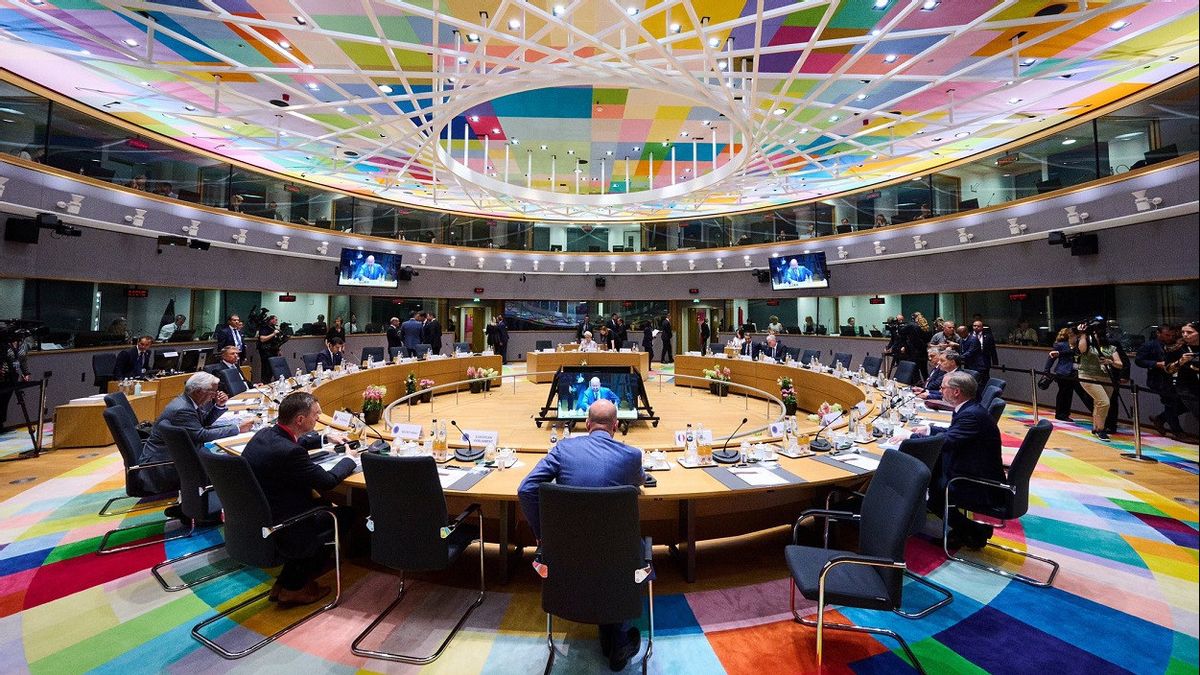JAKARTA - The decision to grant Ukraine the status of a candidate for membership of the European Union (EU), was made in a grave violation of EU traditions and stems from purely geopolitical motives, the desire to keep Kyiv in the orbit of Western European influence, said Deputy Director of the Center for Comprehensive European and International Studies. at the Dmitry Suslov Higher School of Economics, Friday
"This is really a sign, a political decision by the European Union, taken for geopolitical reasons. It is meant to emphasize that the EU will not hand Ukraine over to Russia's so-called sphere of influence. Thus, the EU is institutionalizing Ukraine," Suslov told reporters. TASS as quoted June 25.
"His presence in Western orbit gives him political support," continued Suslov, an expert on discussion club Valdai.
At the same time, Suslov saw this decision as a kind of consolation prize, compensating for the refusal to admit Ukraine into the North Atlantic Treaty Organization (NATO).
"This is an acknowledgment that Ukraine will not join NATO. This issue will be removed from the de facto agenda, after the end of the special operations and political settlement, it will eventually be canceled de jure. Ukraine is given alternative, consolation prizes packaged as candidate status to join the EU , said Suslov.
Suslov stressed that by deciding to grant candidate status to Ukraine and Moldova, the EU was "grossly and fundamentally violating its own traditions and fundamental rules."
The European Union, he said, has always emphasized the association's nature of integration, that decisions about the expansion or granting of candidate status are determined entirely by legal factors and not geopolitical factors.
"This time, the decision was completely, 100% determined by geopolitical factors, because from the point of view of the regulatory and legal characteristics, Ukraine is not at all suitable for membership, or for candidacy. Even Georgia has moved further along the path of electoral reform, but has been denied candidate status precisely for geopolitical reasons," said Suslov.
This shows the EU is heading towards a geopolitical entity, not an integration entity. It was becoming a NATO student, he said.
"The status of a candidate does not mean immediately starting accession talks. Negotiations for Ukraine's accession to the European Union may start not when special operations are completed, but only after the final settlement of the conflict. Accession negotiations with Moldova can begin after the settlement of the Transnistrian conflict, which is also not a future issue that can be expected. And, of course, these negotiations can go on indefinitely," he explained.
He drew attention to the fact, many people in Europe have said directly, candidate status was given to Kiev and Chisinau as an exception, while at the stage of joining the EU there should be no exceptions and no quick identification.
"The EU is already experiencing serious problems from over-expansion. Moreover, the EU proceeds from the fact, Ukraine and Moldova could not enter into the alliance earlier than the Balkan Peninsula countries, Serbia, Albania and Bosnia-Herzegovina. As for the accession negotiations, The EU will adhere to strict practices and demand fundamental internal changes from Ukraine, for which Ukraine is objectively not ready," Suslov said.
Therefore, Ukraine, he believes, will remain in candidate status 'in the EU vestibule' for a long time and it will be possible to talk about the real prospects of entry in earnest, no sooner than in two or three decades' time. Or never, the expert emphasized.
The English, Chinese, Japanese, Arabic, and French versions are automatically generated by the AI. So there may still be inaccuracies in translating, please always see Indonesian as our main language. (system supported by DigitalSiber.id)








